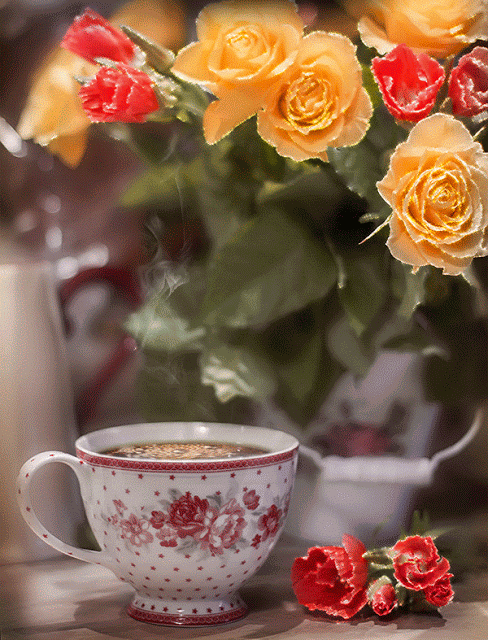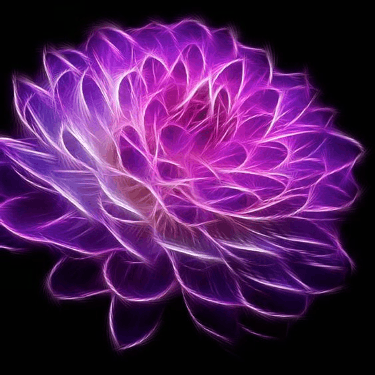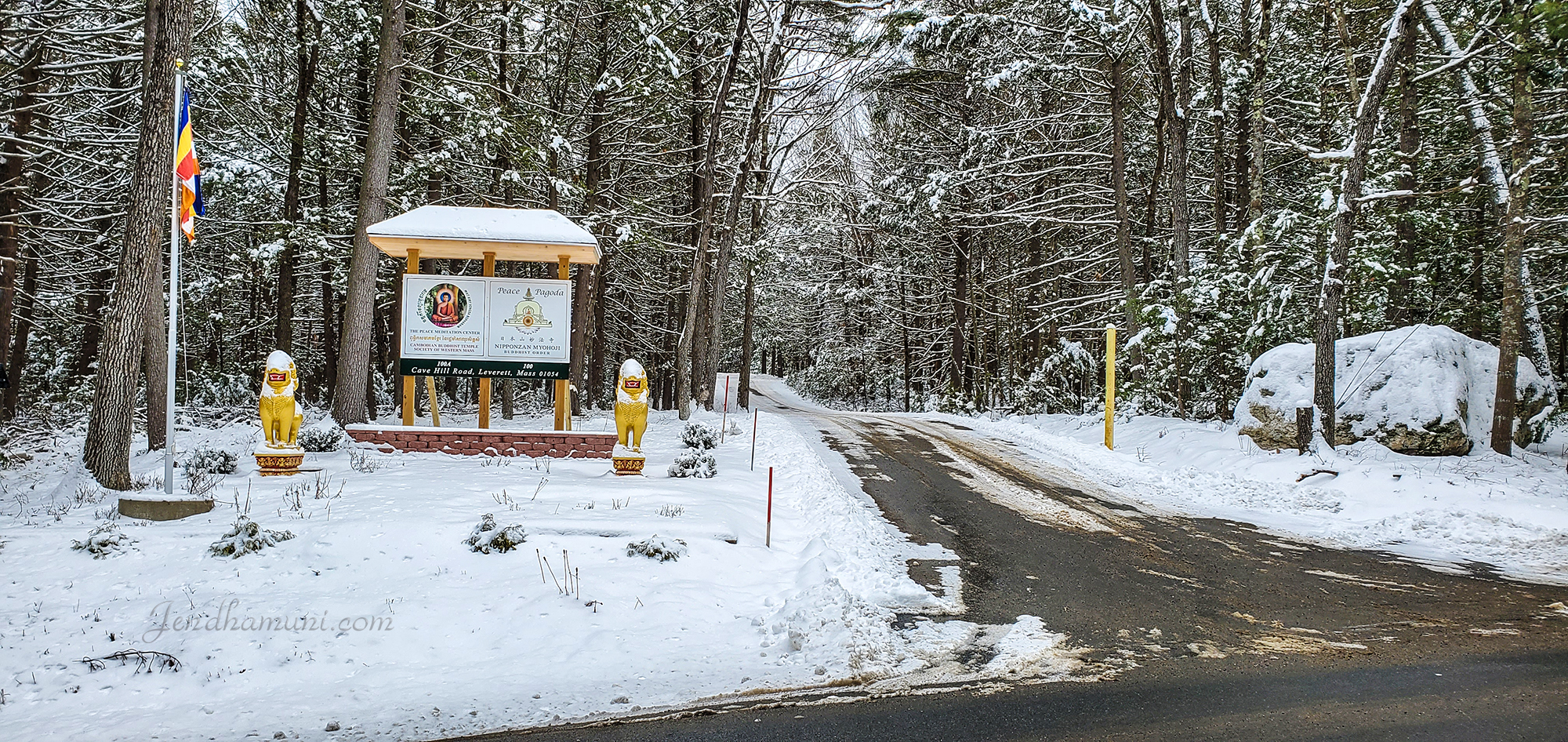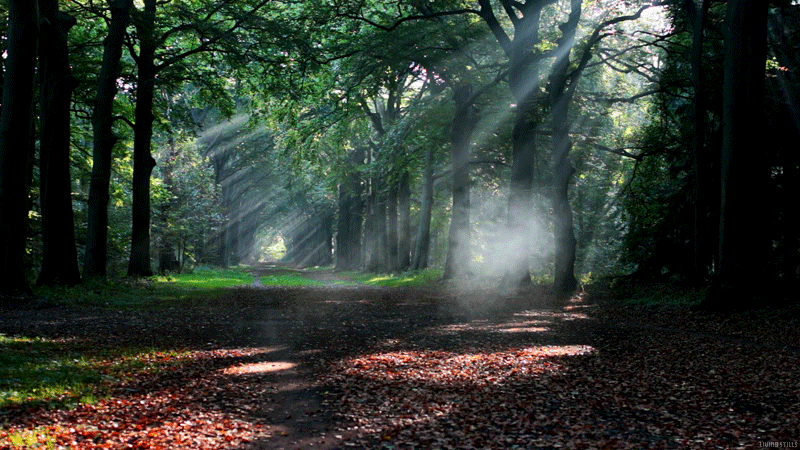-
Comment February 7, 2021
-
Look beside you and your best friend will be there
1 February 7, 2021- When it hurts to look back and you’re afraid to look ahead, you can look beside you and your best friend will be there.
- Best friends believe in you when you don’t believe in yourself.
- A good friend knows all your stories. A best friend helped you write them.
- Best friends are the people in your life that make you laugh louder, smile brighter, and live better.
— Shutterfly
-
Outer circumstances of our lives
2 February 5, 2021We often think the only way to create happiness is to try to control the outer circumstances of our lives, to try to fix what seems wrong or to get rid of everything that bothers us. But the real problem lies in our reaction to those circumstances. What we have to change is the mind and the way it experiences reality. — Chagdud Tulku Rinpoche
-
When someone insults us, we usually dwell on it
2 February 5, 2021When someone insults us, we usually dwell on it, asking ourselves, ‘Why did he say that to me?’ and on and on. It’s as if someone shoots an arrow at us, but it falls short. Focusing on the problem is like picking up the arrow and repeatedly stabbing ourselves with it, saying, ‘He hurt me so much. I can’t believe he did that.’
Instead, we can use the method of contemplation to think things through differently, to change our habit of reacting with anger.
Imagine that someone insults you. Say to yourself, ‘This person makes me angry. But what is this anger?’ It is one of the poisons of the mind that creates negative karma, leading to intense suffering. Meeting anger with anger is like following a lunatic who jumps off a cliff. Do I have to go likewise? While it’s crazy for him to act the way he does, it’s even crazier for me to do the same. ~ Chagdud Tulku Rinpoche
-
The Story of Samanera Sukha
Comment February 4, 2021Verse 145: Farmers1 channel the water; fletchers straighten the arrows; carpenters work the timber; the wise tame themselves.
- Farmers: lit., makers of irrigation canals.
The Story of Samanera* Sukha
While residing at the Jetavana monastery, the Buddha uttered Verse (145) of this book, with reference to a samanera named Sukha.
Sukha was made a samanera at the age of seven years by Thera Sariputta. On the eighth day after being made a samanera he followed Thera Sariputta on his alms-round. While doing the round they came across some farmers irrigating their fields, some fletchers straightening their arrows and some carpenters making things like cart-wheels, etc. Seeing these, he asked Thera Sariputta whether these inanimate things could be guided to where one wished or be made into things one wished to make, and the thera answered him in the affirmative. The young samanera then pondered that if that were so, there could be no reason why a person could not tame his mind and practise Tranquillity and Insight Meditation.
So, he asked permission from the thera to return to the monastery. There, he shut himself up in his room and practised meditation in solitude, Sakka and the devas also helped him in his practice by keeping the monastery very quiet. That same day, the eighth day after his becoming a samanera, Sukha attained arahatship. In connection with this, the Buddha said to the congregation of bhikkhus, “When a person earnestly practises the Dhamma, even Sakka and the devas give protection and help. I myself have kept Sariputta at the entrance so that Sukha should not be disturbed. The samanera, having seen the farmers irrigating their fields, the fletchers straightening their arrows and the carpenters making cart-wheels and other things, trains his mind and practises the Dhamma. Thus, he has now become an arahat.” Continue reading
-
A condition caused by ignorance
2 February 4, 2021Now we are afflicted by “me-my-mine-itis,” a condition caused by ignorance. Our self-centeredness and self-important thinking have become very strong habits. In order to change them, we need to refocus. Instead of concerning ourselves with “I” all the time, we must redirect our attention to “you” or “them” or “others.” Reducing self-importance lessens the attachment that stems from it. When we focus outside ourselves, ultimately we realize the equality of ourselves and all other beings. Everybody wants happiness; nobody wants to suffer. Our attachment to our own happiness expands to an attachment to the happiness of all. ~ Chagdud Tulku Rinpoche
-
Don’t burden others with your expectations
1 February 3, 2021 -
Change is continuous
1 February 3, 2021Change is continuous. Day by day, one season slips into the next. Day turns into night and night to day. Buildings don’t suddenly grow old; rather, second by second, from the moment they’re constructed, they begin to deteriorate… Think of beings inhabiting this universe. How many people born a hundred years ago are still alive?… We see the play of impermanence in our relationships as well. How many of our family members, friends, people in our hometown, have died? How many have moved away, disappearing from our lives forever?… At one time we felt happy just being near a person we loved. Just to hold that person’s hand made us feel wonderful. Now maybe we can’t stand him, don’t want to know anything about him. Whatever comes together must fall apart, whatever once fathered must separate, whatever was born must die. Continual change, relentless change, is constant in our world. ~ Chagdud Tulku Rinpoche
-
Papavagga: Evil
Comment February 3, 2021- Hasten to do good; restrain your mind from evil. He who is slow in doing good, his mind delights in evil.
-
Should a person commit evil, let him not do it again and again. Let him not find pleasure therein, for painful is the accumulation of evil.
-
Should a person do good, let him do it again and again. Let him find pleasure therein, for blissful is the accumulation of good.
-
It may be well with the evil-doer as long as the evil ripens not. But when it does ripen, then the evil-doer sees (the painful results of) his evil deeds.
-
It may be ill with the doer of good as long as the good ripens not. But when it does ripen, then the doer of good sees (the pleasant results of) his good deeds.
-
Think not lightly of evil, saying, “It will not come to me.” Drop by drop is the water pot filled. Likewise, the fool, gathering it little by little, fills himself with evil.
-
Think not lightly of good, saying, “It will not come to me.” Drop by drop is the water pot filled. Likewise, the wise man, gathering it little by little, fills himself with good. Continue reading
-
The Story of Thera Pilotikatissa
Comment February 2, 2021Verse 143: Rare in this world is the kind of person who out of a sense of shame restrains from doing evil and keeps himself awake like a good horse that gives no cause to be whipped.
Verse 144: Like a good horse stirred at a touch of the whip, be diligent and get alarmed by endless round of rebirths (i.e., samsara). By faith, morality, effort, concentration, discernment of the Dhamma, be endowed with knowledge and practice of morality, and with mindfulness, leave this immeasurable dukkha (of samsara) behind.
- dhammavinicchayena (dhamma + vinicchaya): discernment of the Dharnma or Law. It is explained by the Commentary as karanakarana jananam, knowing right and wrong causes of things.
The Story of Thera Pilotikatissa
While residing at the Jetavana monastery, the Buddha uttered Verses (143) and (144) of this book, with reference to Thera Pilotikatissa.
Once, Thera Ananda saw a shabbily dressed youth going round begging for food; he felt pity for the youth and made him a samanera. The young samanera left his old clothes and his begging plate on the fork of a tree. When he became a bhikkhu he was known as Pilotikatissa. As a bhikkhu, he did not have to worry about food and clothing as he was in affluent circumstances. Yet, sometimes he did not feel happy in his life as a bhikkhu and thought of going back to the life of a lay man. Whenever he had this feeling, he would go back to that tree where he had left his old clothes and his plate. There, at the foot of the tree, he would put this question to himself, “Oh shameless one! Do you want to leave the place where you are fed well and dressed well? Do you still want to put on these shabby clothes and go begging again with this old plate in your hand?” Thus, he would rebuke himself, and after calming down, he would go back to the monastery. Continue reading




















